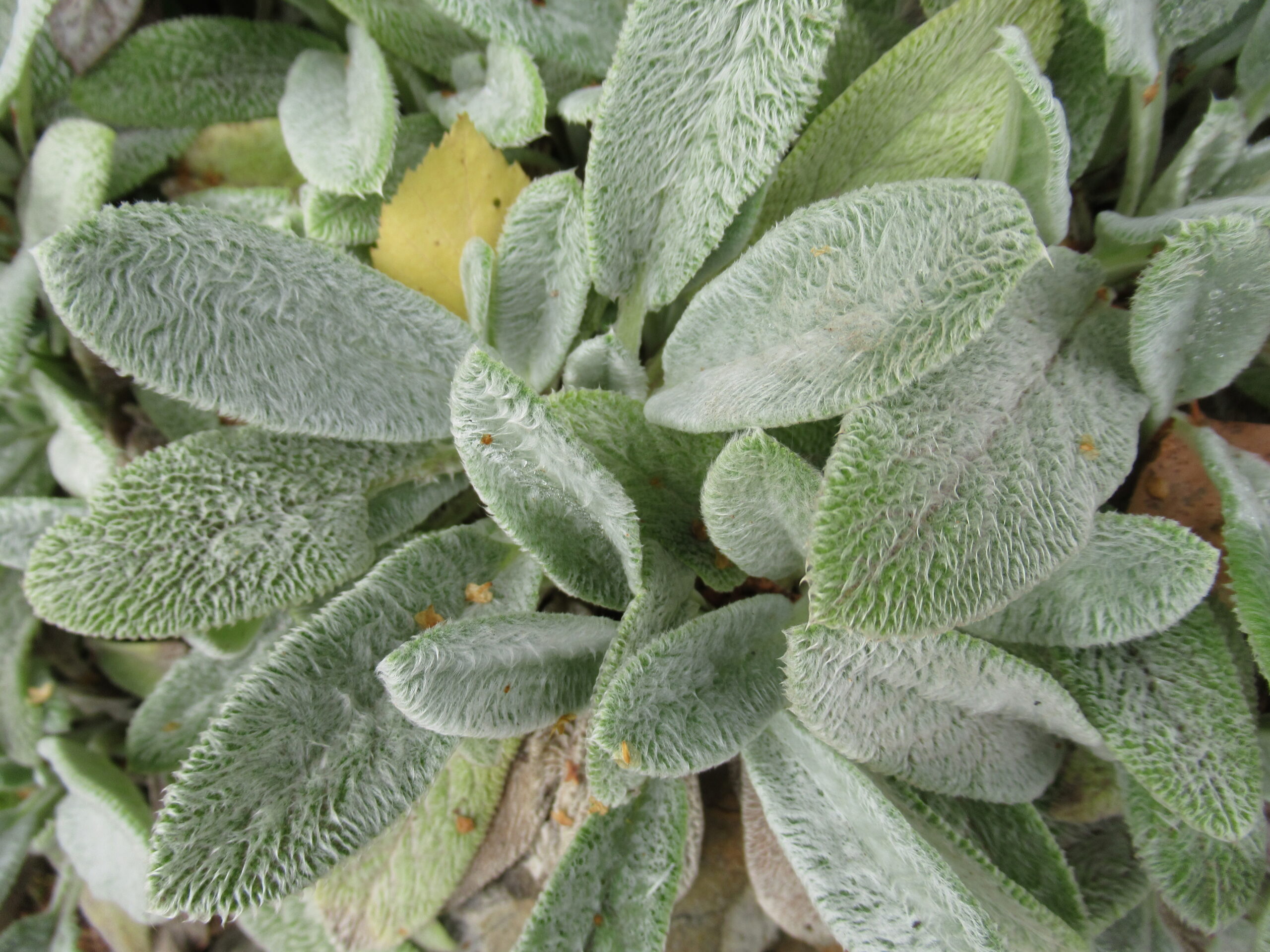No more at home here
than the lambs, though no
less so
among the Banks Peninsula’s steep,
grassy, and almost pathless
declivities, the paired-off stalks can grow
to the height of a house cat; they slouch,
almost as much at ease
as a cat would be, amid the taller foxglove blooms, whose buttered-popcorn and flame-
orange bells emerge
so early in the Southern summer’s game,
as if to ring in the new year.
Too soft to be called teeth,
too thick, except
in direct sunlight, to see through,
the diminutive lobes on their immature
aluminum-gray or Statue-of-Liberty-green
leaves’ edge look faded even when brand-new.
Their paler fur will catch
a drop from a hiker’s water bottle if it spatters,
if that hiker happens to slide
down the unexpectedly parabolic
curve of a given hillside.
Though dwarfed by nearby sheaves
of bladed flax, or harakeke, the woolly stems
can hold their ground like hooves;
the individual petioles try
to overtake one another, competing
harmlessly, like teams
in the fairest of sports.
Each puffed leaf-ridge seems to invite
a child’s finger and thumb.
No thicker than the skin
of a tuned kettledrum,
they might have come
here in search of a world without force,
or at least without force of arms.
If they could speak
they would not; they would wait
for a durable peace,
for people taking one another on faith
across the continents,
as well as in this not-quite-wilderness
with its traced-in, bush-sheltered not-quite-farms,
where no human being or sheep
is likely to get entirely lost,
given the tree-bark hash marks, dry plank
shelters, twine-bordered streambeds, and occasional hand-carved
fenceposts with their hand-mounted
scarlet or cherry-red fire alarms.
Stephanie Burt is a poet and professor of English at Harvard University. First published in the May 15, 2017 issue of The New Yorker, “Lamb’s Ear” will appear in Stephanie’s forthcoming volume, We Are Mermaids, out in fall 2022 from Graywolf Press.
